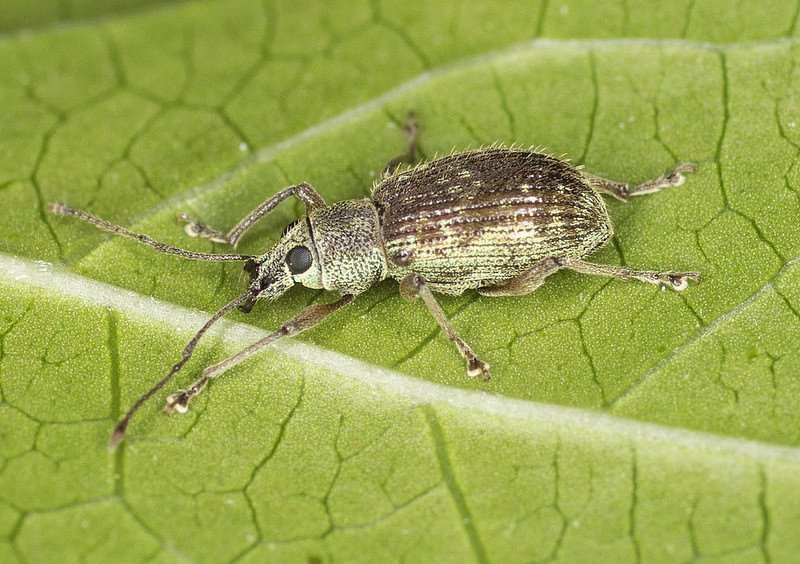Robert Marquis, Laura Bhatti Catano (University of Missouri St. Louis)
The Asiatic oak weevil is the most abundant free-feeding, leaf-chewing insect on oak trees in the Missouri Ozarks. The larvae feed on tree roots, and adults feed on leaves. Because of its abundance, and the fact that it attacks seedlings, this insect species may affect forest dynamics in the Ozarks. As a first test of its impact, in July 2016, we inoculated 30 black oak seedlings with three adult weevils, following the growth and survivorship of these plants compared to 30 controls. Control and treatment plants were interspersed and naturally growing along a south-facing slope at Tyson. Re-measurement of plants in 2017 showed no effects of treatment on added stem growth, seedling height, number of leaves, or survivorship. However, there was a 25% decrease in total leaf area of plants inoculated with weevils compared to controls. We will continue to follow these same seedlings at least one more year to determine whether effects continue.


